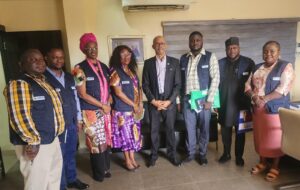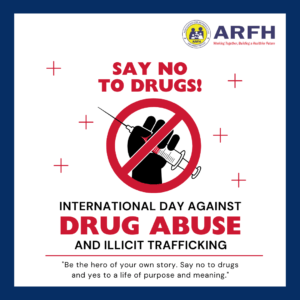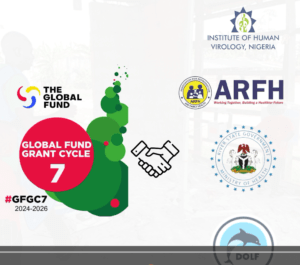
Every year, organizations around the world commemorate World Tuberculosis Day on March 24th to raise public awareness about the devastating health, social and economic consequences of tuberculosis (TB) and to step up efforts to end the global tuberculosis epidemic. Political leaders, medical practitioners and development workers may be at the forefront of tackling this disease, the theme for this year’s commemoration, “Wanted: Leaders for a TB-free world”, is a call to action for everyone to join the movement for a TB free world.
According to WHO, Tuberculosis happens to be the unprecedented world’s most infectious deadly killer with about 4500 lives lost per day[i] and unfortunately, Nigeria is far worse hit by this global epidemic in Africa. Nigeria currently ranks 7th in the world and 2nd in Africa among the 30 countries with the highest burden of TB, TB/HIV, multi drug resistant TB. Significant progress has been made in the fight against Tuberculosis, but it continues to be a life-threatening disease that is worsened by many challenges responsible for its prevalence. Although curable, treatment and diagnosis for Tuberculosis continue to be a matter of global concern, especially in the emergence of multidrug-resistant TB (MDR TB) which poses a major health security threat and jeopardizes long running global efforts to curb the deadly disease[ii].
Most worrisome is the co-infection of TB in people living with HIV (PLHIV). The risk of developing tuberculosis is estimated to be between 16-27 times greater in people living with HIV than among those without HIV infection, says WHO. In Nigeria, the burden of tuberculosis is particularly high amongst newly diagnosed HIV-infected children[iii]. The good news is that TB among PLHIV is preventable and curable; TB drugs are available, free and provided for in many health care centers. However, there seems to be more media and development attention given to HIV; given the risk HIV patients face in the incidence of TB, it is very important to establish collaborations in the prevention and treatment of TB and HIV.
TB has become a challenging development problem because one of the major factors fueling its prevalence is poverty; sadly, we have about 152m Nigerians living below poverty line[iv]. WHO reports that about 2 million people die from TB yearly and 10.4 million new cases of TB were reported in 2016, with seven countries accounting for 64% of the burden comprising of India, Indonesia, China, Philippines, Pakistan, Nigeria and South Africa[v]. Sadly, many of these people affected by TB are poor and disadvantaged people who live in impoverished communities with remote access to healthcare and because TB infected persons also experience stigma and discrimination, many TB cases go untreated. Transmission of the disease continue unabated and because TB is airborne, the effects are devastating.
In the course of a year, people with active TB can infect 10–15 other people through close contact. Infants, people living with HIV, women and people living in marginalized communities are more at risk of contracting TB. A bad cough that lasts longer than two weeks, chest pain, fatigue, weight loss, lack of appetite, chills, fever and night sweats are symptoms associated with TB; anyone experiencing these should seek medical care immediately.

Concerted efforts is required to curb the continuous spread of tuberculosis from prevention, diagnosis to treatment and one that requires the full commitment of every stakeholder involved in the wellbeing of its people. As a country, Nigeria abysmally falls short in its investment for tuberculosis intervention with most of its work portfolio and funding residing with the National Tuberculosis and Leprosy Control Program (NTLCP) under the Ministry of Health. It is commendable that the ministry have made considerable progress with the drafting of the National Strategic Plan for Tuberculosis Control towards providing Universal Access to Prevention, Diagnosis and Treatment by 2020 in line with its commitments to World Health Organization. However there are several bottlenecks affecting the success of this plan, such as inadequate budget provisions and disbursements, access to hard-to-reach areas, unreported TB cases and inadequate human resource technical capacity. This is worsen by the deplorable state of many primary health care centers in Nigeria.
It is time for us all to change the narrative. There is so much you can do; join champions all over the world to raise awareness about TB among your friends, colleagues, employees, partners, families, and communities. The more people know about TB, the more focus and resources can be shifted toward ending it[vi]. Join advocates all over the world to call for increased political commitment, asking governments at all levels to match political commitments to TB investments, while you can donate to credible TB projects going on in your communities.
The Association for Reproductive and Family Health (ARFH) is one of the leading indigenous non-profit organizations in Nigeria committed to improving the quality of life of underserved and vulnerable communities by promoting access to quality health care. As a member of the Stop TB Partnership Nigeria, ARFH is championing interventions in Nigeria in the quest for a TB-free world.
[i] World Tuberculosis Day 2018. Retrieved: 13.03.2018. Source: World Health Organization.
[ii] Implementing the End Tb Strategy: The Essentials. World Health Organization, 2015. Retrieved: 12.03.2018. Available at: http://www.who.int/tb/publications/2015/end_tb_essential.pdf?ua=1
[iii] Prevalence of and risk factors for pulmonary tuberculosis among newly diagnosed HIV-1 infected Nigerian children. By Ebonyi et al (2016). Retrieved: 12.03.2018. Available at: https://www.ncbi.nlm.nih.gov/pmc/articles/PMC4788778/
[iv] 152m Nigerians Live Below Poverty Line. Retrieved: 14.03.2018. Source: African Development Bank Group
[v] Global Tuberculosis Report 2017. Published: 30.08.2017 Retrieved: 13.03.2018. Source: World Health Organization.
[vi] World TB Day 2018, What Can I do? Retrieved: 12.03.2018. Source: Stop TB Partnership




